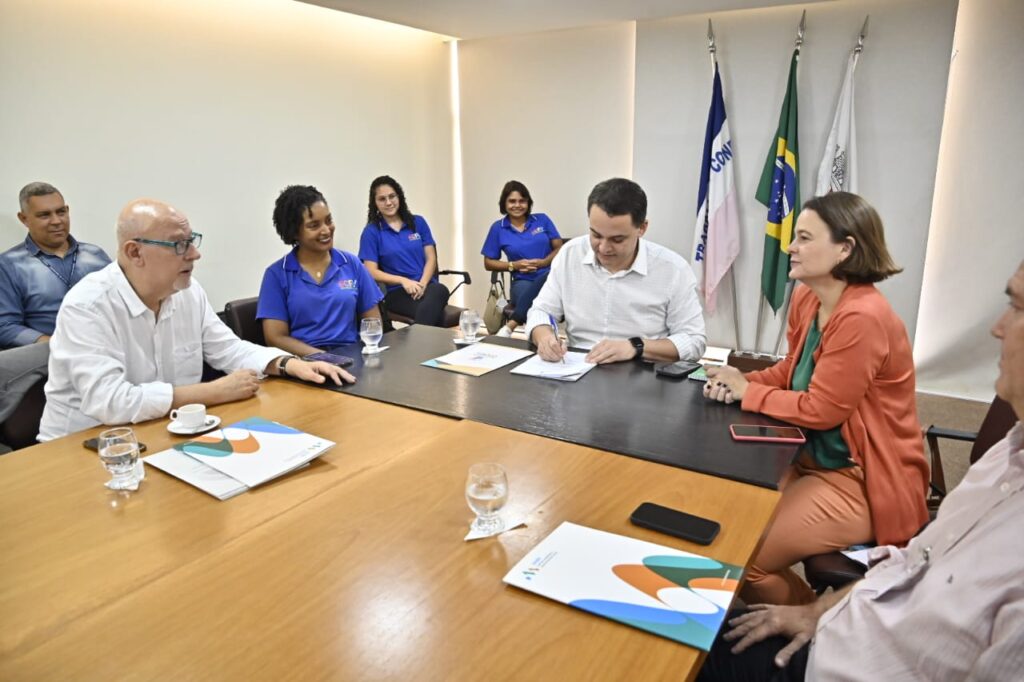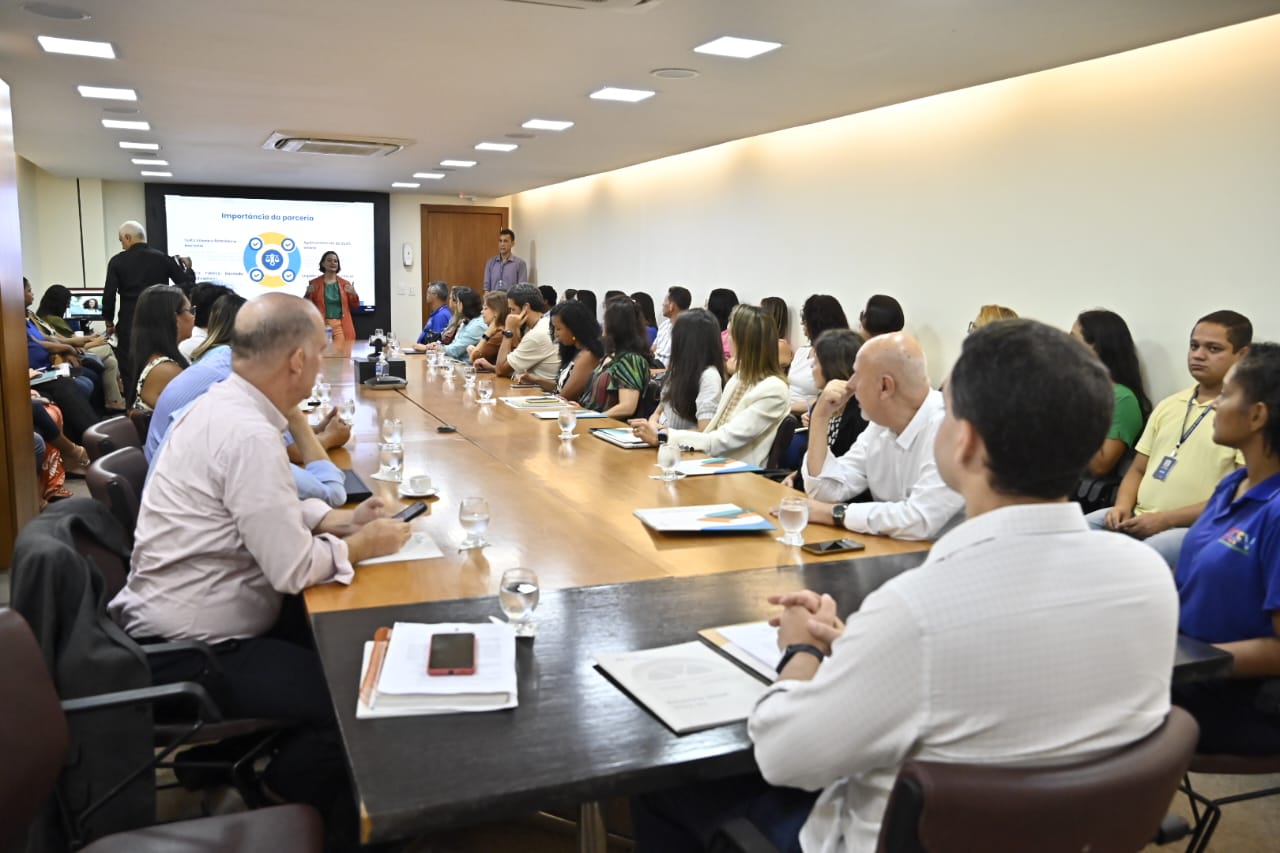
IMDS signs Technical Cooperation Agreement with the city of Vitória (ES)
On April 18, the IMDS board of directors was received by the mayor of Vitória (ES) and his team for a special celebration: the signing of the Technical Cooperation Agreement (TCA) for the development of in-depth studies on Basic Social Protection services. The work aims to contribute to the development of a reference model for a policy that promotes inclusion and social mobility. Present at the ceremony were Mayor Lorenzo Pazolini and the head of the Secretariat of Social Assistance (Semas), Cintya Schulz, and their teams, as well as Paulo Tafner, CEO of IMDS.
After the signings, the IMDS research director, Sergio Guimarães, IMDS researchers Bruna Goussain and Flavio Riva, and Oppen Social specialists and researchers, Andrezza Rosalém and Giovana Lima, participated in a series of technical meetings with Semas teams to detail the initiatives. Oppen Social is a partner of IMDS in this project.
For Paulo Tafner, “this institutional partnership between IMDS and the Municipality of Vitória is at the same time a sign of vitality of both participants and a challenge in the search for broader, fairer and even more economical social assistance. It is also an opportunity for us to create a model that serves as a guide to be used by municipalities and states, and is therefore a valuable public asset.”

The city of Vitória and the team of technicians at Semas have preconditions that make it possible to answer, with a reasonable degree of precision, a series of questions that arise when investigating the Unified Social Assistance System (SUAS), ranging from the way these services, programs and benefits are offered to how the service network is able to identify and serve those who need it most.
“The interest of this study is to discuss basic social protection not only in Vitória, but in Brazil,” emphasizes Sergio Guimarães, director of research at IMDS. “If successful, the project has the potential to help other cities that have a database similar to that of the municipality of Vitória.”
In a recent series of studies, the institute investigated social mobility in the first generations of the Bolsa Família Program. Although a movement of social ascension of these children in relation to their parents has been identified, it is also observed that in many municipalities the vast majority of them remain dependent on social assistance.
The research also indicated that the great difference between social mobility rates of municipalities is mainly explained by the vulnerability in the place of residence of the child’s family, measured in dimensions of health, education, income and demography during childhood and adolescence. The chances of emancipation of these young adults in relation to the transfer of income and insertion in the formal labor market are affected by the conditions of local economic development and by the availability and effectiveness of the performance of local public agents.
In this matter, there is a relevant question to be answered: how does the Brazilian basic social protection network act to increase the chances of emancipation of a poor child or young adult? Brazilian social assistance offers a wide range of services, benefits and programs that are ensured by the Organic Law of Social Assistance (Law No. 8,742/1993). To address this question, the next step was to develop a project to investigate the typical activities of the Unified Social Assistance System (SUAS) and, for this, a logical diagram was assembled from the detailed study of its entire normative framework (112 documents, including laws, decrees, ordinances, resolutions and basic guidelines.)